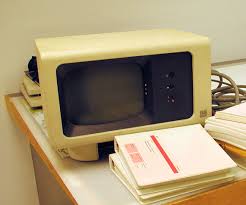News has surfaced that the US nuclear weapons force in the Pentagon is still relying on 1970s technology, including floppy disks and an IBM Series-1 computer. A spokesperson from the Pentagon said that the floppy drives are scheduled to be replaced in 2017 and that the reason the whole system had not been replaced sooner was because “in short, it still works”.
Wieland Alge, VP & GM EMEA at Barracuda Networks points out that there are in fact lots of industrial organisations that are still using retro technologies, and they are secure as long as the legacy devices are not connected to any networks.
Wieland Alge, VP & GM EMEA at Barracuda Networks
 At first glance, it’s easy to make fun of the Pentagon for relying on 1970s tech. If you look a bit closer, you’ll actually see that many other large organisations are running similar legacy systems. The Pentagon has by all accounts been running a bulletproof, isolated system, which certainly appears to have been doing its job to full satisfaction.
At first glance, it’s easy to make fun of the Pentagon for relying on 1970s tech. If you look a bit closer, you’ll actually see that many other large organisations are running similar legacy systems. The Pentagon has by all accounts been running a bulletproof, isolated system, which certainly appears to have been doing its job to full satisfaction.
Even today, we see many industrial environments using a similar setup. Sure, the industrial world isn’t run on floppy disks, but there is still a lot of 1990s and early 2000s technology used to control plants and steer machines. The real dangers surface when these organisations try to connect legacy systems to networks, thereby exposing them to modern vulnerabilities.
Like a Brit setting off on a sunny summer holiday only to be scorched by the Sun on day one, IT teams can’t prepare for something that has been out of view for so long. The key to securing connected legacy and modern devices in Industry 4.0 is to seal the entire attack surface as quickly as possible.
The opinions expressed in this post belongs to the individual contributors and do not necessarily reflect the views of Information Security Buzz.



